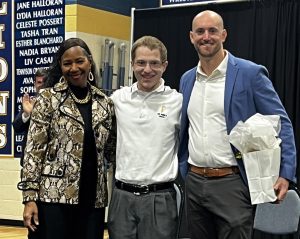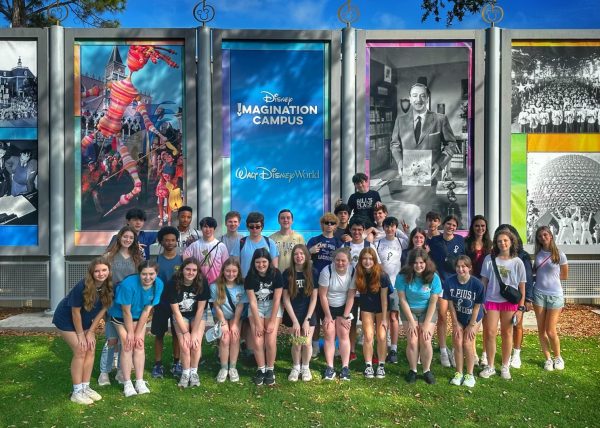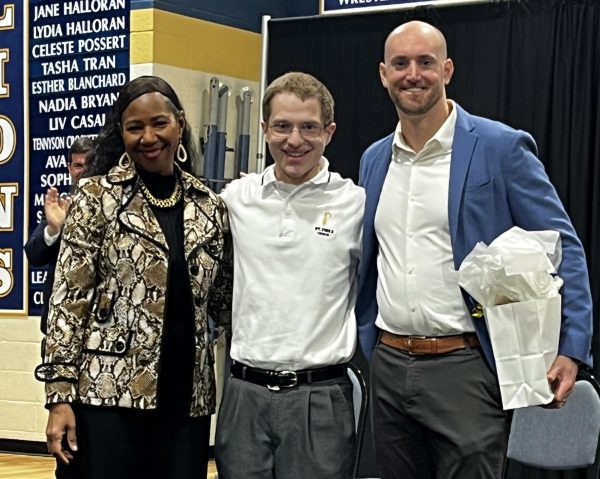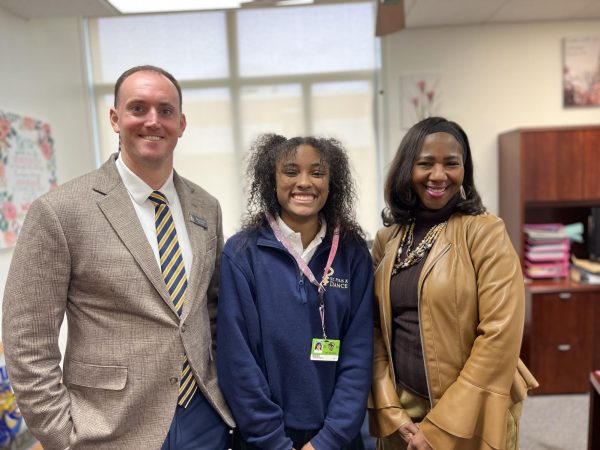St. Pius X welcomes safe driving advocate, Ms. Molly Welch
Ms. Molly Welch speaks to the student body on Friday, January 14 about the dangerous consequences of distracted driving.
January 26, 2022
Ms. Molly Welch spoke at an all-school assembly on Friday, January 14 discussing the dangers of distracted driving and recounting her own experience.
Welch was a student at Auburn University, on track to earn a bachelor’s degree in journalism. However, one day after visiting a friend, she decided to listen to a recorded interview during the drive back to campus. Welch dropped the recording device, taking her eyes off the road for a quick moment, and drove into oncoming traffic. She was in a coma for several days, suffered a traumatic injury to the left brain, and was semi-paralyzed in her right arm and leg.
“To this day, I can [move] minimal amounts of my right leg and nothing with my right arm,” Welch told the audience.
The severity of the accident caused Welch to be admitted to Atlanta’s Shepherd Center, a rehabilitation hospital for individuals with serious brain and spinal cord injuries. The aspiring journalist spent most of her time there learning how to regain her ability to do actions that many of us take for granted. Despite the extreme hurdles she faced, Welch was determined to overcome the accident. After four years of motivation and faith, she returned to Auburn and earned a bachelor’s degree in journalism.
Welch’s speech serves not only as a reminder to overcome life’s obstacles with strength and determination, but also warns of a serious problem plaguing the nation: distracted driving.
“We all see people driving distracted every day of our lives. So let’s agree, what’s in the books [current laws] is not working…how many people [will] die or become permanently disabled before the law is changed?” Welch asked.
The Center of Disease Control and Prevention classifies distracted driving into three categories: visual (taking your eyes off the road), manual (taking your hands off the wheel), and cognitive (when your mind is not in the best state to drive, such as being too tired or stressed.)
The CDC also reports that “every day about 8 people in the United States are killed in crashes that are reported to involve a distracted driver,” yet people continue to drive while checking texts, making calls, or listening to loud music.
Recognizing the importance of safe driving, insurance companies such as Geico are determined to eliminate distracted driving in the United States and have advice for keeping passengers and the driver safe. Some of the tips include using your cell phone for emergency situations only, avoiding eating, and limiting the number of passengers riding.
Stories like Welch’s are a prime example of the consequences of distracted driving, reminding St. Pius students that responsibility is a priority on the road.
Concluding the assembly, Welch asked the audience, “What are y’all going to do? Are y’all going to focus more on the road? Put your electronic devices out of reach? Buckle up and place both hands on the wheel? It’s a choice, please make the correct one.”
















